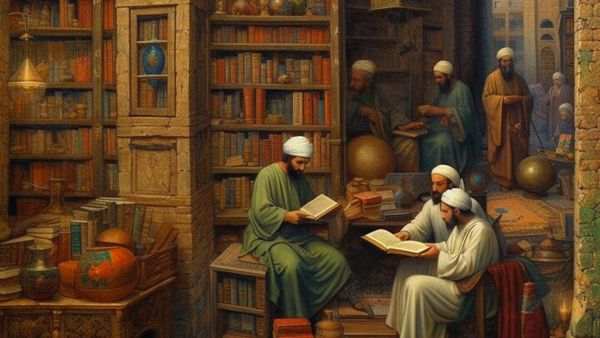It could be said that Avicenna was the first philosopher who attempted to create a complete philosophical encyclopedia, something that had never been done before in either the Greek world or the Islamic tradition.
According to Ashura News, quoted by Mehr reporter, Hossein Masoumi Hamedani, retired professor of the Iranian Research Institute of Philosophy and Wisdom, said at the conference "From Healing to Law": One of the outstanding characteristics of Avicenna is his effort to gather all branches of philosophy in the form of a unified system. It can be said that he is the first philosopher who tried to create a complete philosophical encyclopedia; a task that had no precedent before him either in the Greek world or in the Islamic tradition.
He added: Avicenna divides philosophy, following the Aristotelian tradition, into two parts: theoretical and practical. The theoretical part itself is divided into three branches: physics (physics), mathematics, and metaphysics (theology). The division is based on the relationship of the subject under discussion to matter: physics deals with beings whose existence depends on matter, mathematics deals with beings that are abstract from matter in the mind but dependent on matter externally, and theology deals with beings that are independent of matter both in the mind and externally. Before Avicenna, philosophers such as al-Kindi and al-Farabi had also dealt with mathematical subjects, but they did not consider it part of their philosophical system. Avicenna is the first philosopher to include mathematics as an essential part of philosophy in his intellectual system. This was due to both a personal need and the requirements of the scientific environment of his time.
Referring to the fact that in his autobiography, which he wrote himself, we read that his first education in childhood was related to mathematics, the professor at the Iranian Institute of Philosophy and Wisdom said: "Indian arithmetic" and "algebra and contradiction", two branches that did not exist in Greek mathematics. As a teenager, he began reading Euclid's Principles with a guest who came to their home, and after a few elementary lessons, he read the rest of the book on his own.
He added: Avicenna later wrote in a treatise that in one of his early works, Al-Majmoo', he included all philosophical sciences except mathematics, and he considered this lack of mathematics to be a flaw in his work. Later, in his three main works - Al-Shifa, Nejat, and Al-Alai's Encyclopedia - he made up for this flaw and included mathematics alongside physics and theology.
Dr. Masoumi Hamedani clarified: Al-Shifa, his most important work, includes four main sections: logic, physics, mathematics, and theology. Mathematics occupies a significant volume in this book; even more than theology. This section is a summary of prominent works such as Euclid's Principles and the Nicomachean Book on Arithmetic, although Avicenna himself rarely made mathematical innovations.
In Nejat, Avicenna mentions that, at the request of his friends, he wrote a book that would cover all philosophical sciences, but he wrote only three sections (logic, physics, and theology). His student, Jawzjani, collected other treatises of Avicenna and added a section on mathematics to complete the book.
He continued: In the Encyclopedia of Ala'i, Avicenna also mentions at the beginning that the book should include logic, physics, theology, music, and astronomy. However, the version we have today includes sections that Jawzjani again collected from his scattered works and even added two sections on arithmetic and geometry.
Stating that the place of mathematics in Avicenna's works has received less attention from researchers compared to other branches, Dr. Masoumi Hamedani said: Unlike the sections on logic and theology, which have had numerous editions and critical editions, the mathematics of his works has usually been either ignored or printed incompletely. For example, in the Egyptian edition of the Book of Healing, the mathematics section is very chaotic and incomplete, and in the Nasserist edition it is completely omitted.
A professor at the Iranian Institute of Philosophy and Wisdom Research stated: Although Avicenna does not have a position in mathematics on par with Abu Rayhan al-Biruni or Ibn al-Haytham, his effort to integrate mathematics into a philosophical system is an important step in the history of Islamic thought.
He concluded by saying: It is hoped that with new research, including the publication of a critical edition of some of his mathematical works in Germany, this less-seen dimension of his scientific career will also regain its rightful place.


Post a comment